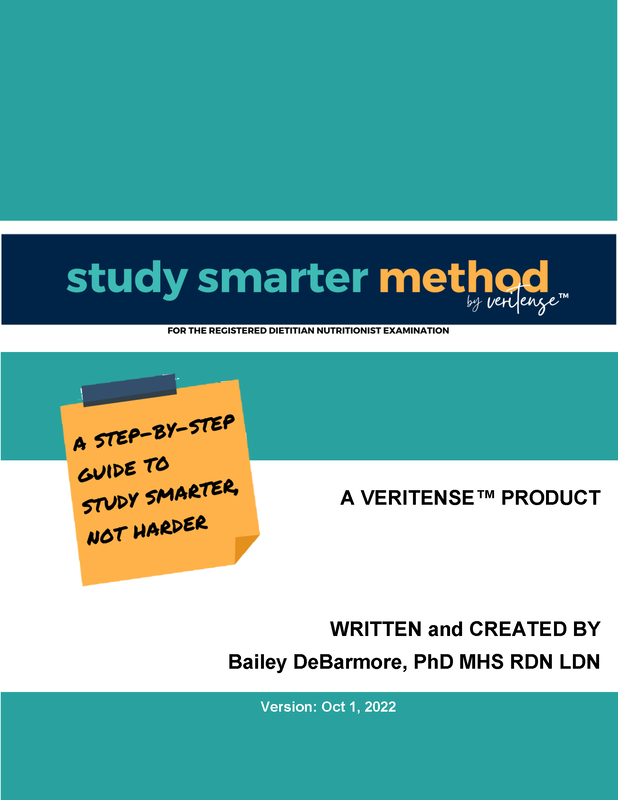|
A few years ago, I wrote a post on some of the best career choices if you're a people person. With the emphasis in the workplace on teamwork and interaction, it seems like everyone is expected to be a people person.
But you're past the days of group projects in school, and you can choose a job that is the best fit for you - not only in content and schedule, but also in how much you interact with others. In this post I'll offer up 4 example jobs for those of us who prefer working alone.
0 Comments
You may have heard the adage, "It's better to look for a job when you already have one." While this may make you feel more secure in the job search, job searching is a job in itself and it can be difficult to juggle a full-time job, non-work responsibilities, and looking for a new job. According to a recent study, approximately “70% of all working-age people are actively looking for a job change,” with many considering leaving their current industry or profession entirely. There are many reasons why you may belong to this statistic, whether you feel burned-out or unappreciated in your current role or have found that your passions/interests have changed since you first started in the professional world. You may simply be interested in what opportunities are out there. You can mark your LinkedIn as "open to work" for specific positions - but only visible to recruiters. Take their call and learn about the position, and get to know them, and even if the job isn't a fit for you right now, you may know someone in your network that you can refer. Photo by Glenn Carstens-Peters on Unsplash
Having a hobby is important. They help structure your time, promote flow against passive leisure, foster new social connections, and help you cope with stress. The benefits of having a hobby on your happiness can spill over into other aspects of your life.
If you find yourself perusing photographer instagram accounts, gleaning the latest tips and browsing through tools of the trade, it may be time for you to expand your photography hobby. We see videos and articles every week about the person who quit their corporate job (or was laid off) and decided to pursue their hobby as a full-time career. You may not be at that point, but who's to say you might not one day? This post will walk you through 10 tips to expand your photography hobby.
Whether you're looking for your first job or your tenth, there are several techniques you can use to get your foot in the door for an interview and ultimately land the position you want.
Whether you are starting a business or are looking for a job, one of the primary keys to your success will be the first impression you make when meeting new potential partners, clients, bosses, and colleagues.
Making a good first impression involves your appearance, your body language, your attitude, as well as both what you say and how you say it.
While many argue that a job or career shouldn't define you, you do spend a significant chunk of your week at that job. Do you want to enjoy it, or just get that 9 to 5 over with?
Would you prefer to do something you are passionate about or is it all about money? A career can start out as a means to an end, but you may learn to love what you do. On the other hand, you may choose to take a lower-paying job because it's something you're passionate about. Lastly, keep in mind that sometimes you need to work in various entry-level positions to gain the experience needed for some more senior roles.
Image by Free Photos from Pixabay
Some people can't imagine a life without travel. The breathtaking views, the variety of people, the tasty and maybe strange foods - it's the experiences you can't live without. If you're forever struck with wanderlust and can't imagine your life without globetrotting, a future where travel and work are balanced can seem impossible.
A job that has you traveling often may or may not satisfy your travel desires, so today I'll be talking about other ways to start with your passion - travel - and develop it into a career where you are truly doing what you love. You don't have to choose between travelling and a career. Thanks to the internet and to jobs that leverage your expertise and love of travel, you can do both. Whether you've joined the land of freelancing as a side gig, as a way to have more freedom in your career, or you're just looking for a way to revitalize your online presence, it's important to take a strategic approach to marketing yourself as a freelance professional. With the COVID-19 pandemic, many of us have transitioned to working remotely or have even lost our jobs. Family commitments may have increased, and you may be looking for a source of income that is flexible. Advantages of freelance work include independence, the ability to control your workload and your exposure. Freelance work can open up posiibilities not possible when you are working for someone else. On the other hand, you don't have a dedicated marketing department or social media coordinator to market your work and abilities. The burden is on you to find clients and convince them you are the person to hire. Just as freelance work is attractive to you, its attractive to mnany others, making freelance bids competative. Your freelance marketing approach should focus on 2 things: publicity and visibility. Let's dive in. 
Having an idea of what you want to do after college is key in making sure you graduate with the necessary knowledge and skills.
Some careers require a 2-year degree, others a 4-year degree, others post-graduate education like a masters, doctorate, or professional degree. It's common for students to change majors partway through school, or go back to school to complete necessary requirements - full time, part time, or through online courses. With this need has flourished a new industry aimed at helping adults of all ages acquire the skills they need for the career they want. Last week I talked about whether online courses are the right choice for you and I've written before about how to balance work and hobbies, and even how to leverage your hobbies.
Whether you're a naturally curious individual, always eager to learn something new in your downtime, or whether you want to bring more meaning to your life by learning something new, it's never too late to start. Whether you're looking for a new career, want to learn a new skill for fun, or want to increase your value at work, online courses (also called online training) are one way to achieve that.
Some examples of what completing online courses could achieve for you? Not only is there a variety of courses offered online, from animal care courses distance learning to foundation healthcare courses to basic data science and programming, no matter what you're looking for, you can find it through online course websites or online schools. Before you jump in, decide if online courses are the right choice for you. Having work-life balance isn't just something to think about, but something you should take steps to achieve. Breaking the constant cycle of working with hobbies, vacation, and any other activities or experiences that you're passionate about will help you be happier, healthier, and productive at work. When your entire identity isn't wrapped up in a single job, you build both your confidence and your resiliency.
You don't have to go through bootcamp or boast a 20 year military career to learn lessons from our Armed Forces. These 4 pieces of advice can help you turn around your current work situation or go down a different road with your career.
Did you know that 70% of Millennials experience imposter syndrome?
Imposter syndrome affects high-achieving individuals who fear they aren't as intelligent as others perceive them to be. Do you worry that you'll be "exposed" in your workplace? That you don't belong? Successful professionals are most likely to struggle with imposter syndrome, particularly if they have trouble internalizing success. Do colleague's compliments roll off your shoulders, but criticism reverberates for weeks? Being modest about your success is healthy as long as you own your accomplishments - don't poke holes in your success! You deserve the recognition that you crave. Impostor syndrome from J. Emilio Flores on Vimeo. It's important to have a life outside of school, and that life might consist of family, friends, and hobbies. Whether you engage in your hobbies for joy or for cash or for both, you can take some steps to leverage that hobby for some side hustle cash while in graduate school.
If you're musically inclined, today's post is for you. Let's talk about leveraging your love of music. If you're fed up with your current job or just looking for something different, know that there are many ways to make a career change. Don't get overwhelmed by the idea of more training - it's easier than ever to learn skills that you need from home, by accessing courses online! You can travel, earn money, and train for the career that you want. Photo by rawpixel.com from Pexels
Do you feel like something's been missing in your life? Are you tired of wasting time in the rat race? As a graduate student, it's easy to get bogged down in minutiae of your tasks, feel overwhelmed by never-ending projects, or with unrealistic deadlines. Balancing work and life is important - but what are you going to do during that "life" part?
Image by lisa runnels from Pixabay
If you're unhappy with your current job, consider these 3 potential solutions.
Everyone experiences days where they feel unsure of themselves or don't feel self-confident. This can be a tough cycle to break out of, especially if you've been feeling these feelings for a long time.
One way to improve your self-esteem is by taking care of yourself. By making your own health - both mental and physical - a priority, you're communicating to your own mind that you are worth it. Here's 7 ways that self-care can boost your self-confidence. Take a look at some of the simple ways that self-care can boost self-esteem.
Anxiety is "an emotion characterized by feelings of tension, worried thoughts and physical changes like increased blood pressure."
- American Pyschological Association definition (source)
Anxiety is a normal and often healthy emotion. However, when a person regularly feels disproportionate levels of anxiety, it might become a medical disorder.
Anxiety disorders form a category of mental health diagnoses that lead to excessive nervousness, fear, apprehension, and worry Anxiety disorders affect 40 million people in the United States. It is the most common group of mental illnesses in the country. However, only 36.9 percent of people with an anxiety disorder receive treatment. from Medical News Today (source) Talking with my medical care provider to come to a solution, and to keep adjusting my treatment as life takes its course, has made an enormous difference in my day-to-day life. If you are struggling with anxiety, I encourage you to speak with your medical provider about it. With doctor visits getting shorter and shorter, I recommend preparing beforehand with a list of questions and answers and being sure to initiate the conversation. This article has information on what to expect when you go to the doctor to discuss your anxiety, and ways you can prepare beforehand.
Before we get started I wanted to make another point. Anxiety looks different for different people (and often is not visible at all). Talking about mental health is important to remove stigma and break down barriers, but realize that if you do find someone else with anxiety, their symptoms and treatment options may not be the same as yours. This article outlines the varied signs and symptoms of anxiety - take a look.
Now, let's talk about some lifestyle changes you can make to manage your anxiety (with and without other treatments). Lifestyle plays a large role in our physical health and wellbeing as well as our mental and emotional state. You may feel like you’re being pulled in a hundred different directions, trying to balance family life, work deadlines, financial pressures, and personal wellness.
By identifying your priorities and taking concrete steps to take back control, you can feel better both at work and at home.
New promotion available at your office? You know you're prepared, intelligent, and capable, and they do, too.
You've done a great job so far. Good grades in school, great university, maybe even some graduate work. You may have even picked up on your teacher and tutor's skills that helped them get to their own successful positions. You networked all the while, and kept in touch with the experienced and knowledgeable people you met, just like the blogs say you should. Having your boss recognize you as a competent employee is different than being first on their mind for a promotion. Do you have the qualities that will help you rise to the top? Most of us have done things we’d rather a future employer didn’t know about. It may be that we made stupid mistakes when we were young. Perhaps we got in with a bad crowd during our impressionable years. Either way, these aren’t exactly things we’re in any rush to put on our resume.
You may be surprised to find out that most successful people had a circuitous journey to get where they are today. I’m still a doctoral student, but knowing that I’m interested in an industry position after graduating I regularly conduct informational interviews with people who do what I want to do. Not only do I learn about the day-to-day of their job and the culture of their company, but I learn about how they got there. And like myself, their journeys are almost never a straight path down the middle. Sometimes a curly-cue career path means you’ve done things that aren’t always relevant to your dream job. Leaving out those experiences may leave your resume looking patchy. So what do you do? Do you include them, or leave it blank and cross your fingers you can talk it out in the interview? If you choose to leave a position off of your resume, be prepared with a positive, straight-forward answer for the interview (phone or in-person). If you took time off to travel, go back to school, health reasons, or family commitments, come up with a strong statement that you’re comfortable with. Luckily there are great resources online to help you explain your resume gaps the right way. The number one rule when it comes to resume gaps is not to brush them under the rug. Make a decision to address them up front in your cover letter, or be prepared to answer questions about gaps in an interview. You can’t go wrong either way as long as you’re prepared. Whether or not school was your “thing” growing up, the education we received from childhood onwards shapes who we thought we could be, who we became, and who we strive to become.
The academic discourse we experienced in school trains us to ask questions, consider multiple perspectives, and deliberate to make decisions. We learned something new every day when we were in school, and if you’re in graduate or professional school now, hopefully you still do. If you’re thinking about going back to school, seriously consider your options. Don’t let naysayers discourage you. Additional training or a graduate degree can improve your employability. Training in a new discipline that you’re passionate about can bring joy to your job. The medical field includes countless roles other than traditional physician and nursing positions. If you are interested in a medical career outside the traditional path, read on for some ideas.
|
popular postsLike what you read?
categories
All
archives
July 2024
This website uses marketing and tracking technologies. Opting out of this will opt you out of all cookies, except for those needed to run the website. Note that some products may not work as well without tracking cookies. Opt Out of Cookies |





























 RSS Feed
RSS Feed